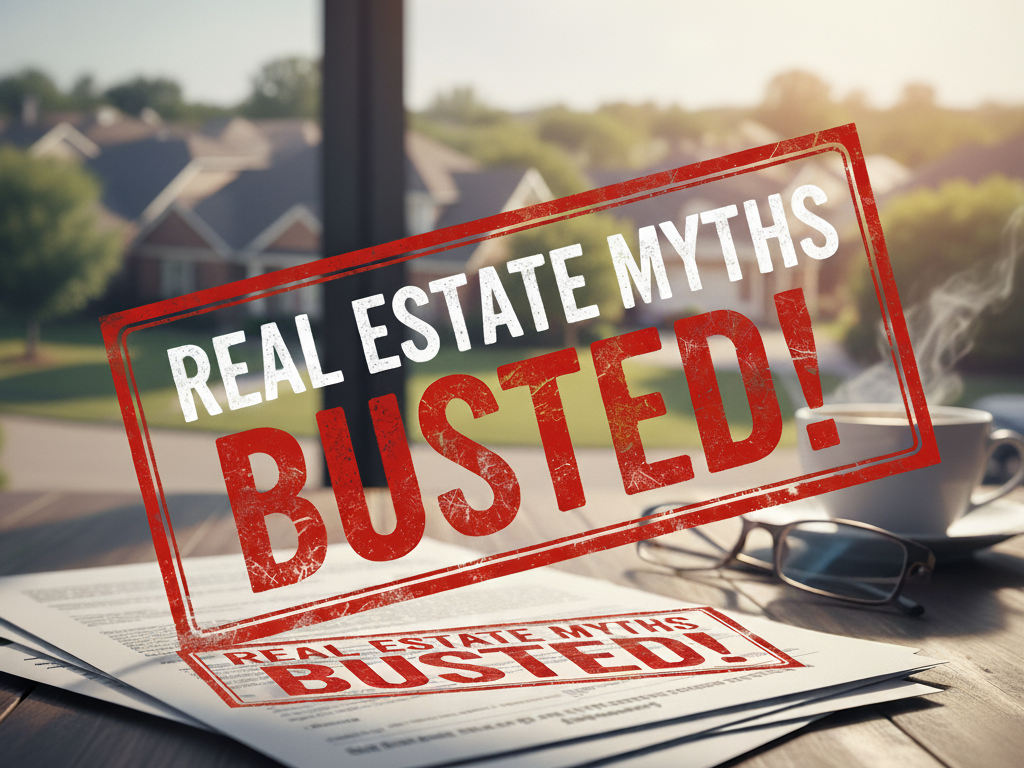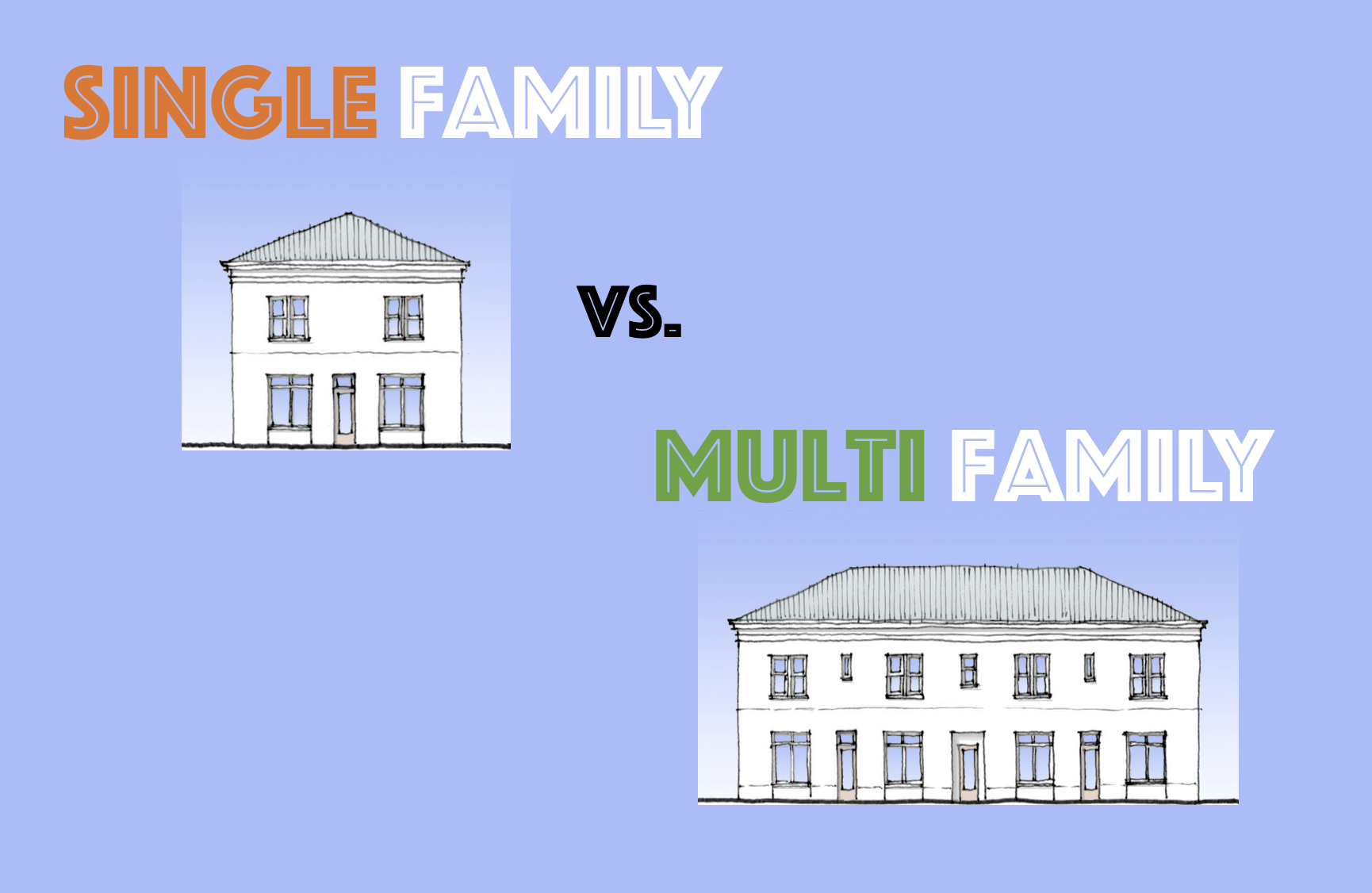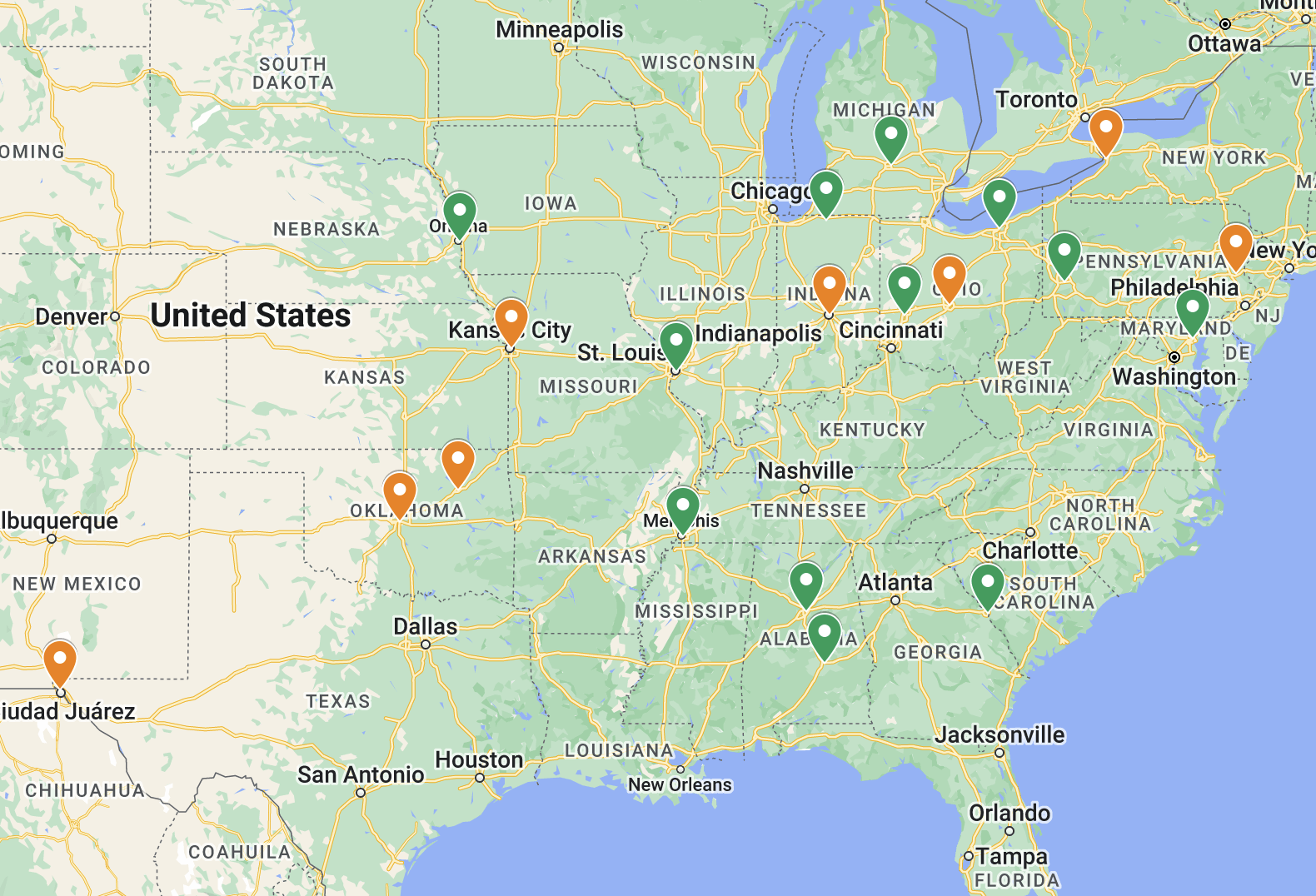Rental Property Coaching Case Study: Ian Scales to 10 Memphis Rental Properties, with Plans for 20
I first met Ian in March 2021 when he scheduled a free initial consultation. He was a quiet, unassuming guy with a laid-back surfer vibe. I would only learn later that he had been a successful touring musician in a band for nearly a decade, but I could tell immediately that he wasn’t the typical high-octane corporate type I often meet through my coaching.
Ian was serious about his investing, though. He had already acquired a few rental properties — one in Albany that was struggling due to poor property management, and a few others in the Charlotte area. He was curious about creating more cash flow with his assets, in order to free up his time & energy and hopefully be able to leave his day job.
From here, I’ll let Ian tell the story in his own words. What follows is a transcript of an interview I conducted with him in early 2024, lightly edited for clarity.
Ian’s Rental Property Coaching Journey
Eric: Ian, thanks for taking the time to talk about your rental property journey and some of your experiences. So why don't you start by telling me a little about yourself and why you got interested in rental properties.
Ian: Sure. I am 41 years old, married, two children, I live in California, very high cost of living area. Tough for cash flowing real estate. I got married in 2017 and started buying real estate, not haphazardly, but not really knowing what I was doing. I kind of always knew that I wanted to go into real estate but I didn't know HOW exactly to do it, so I just kind of jumped in. What drew me to single family homes out of state was the need to find something scalable and mostly passive. It was something that I was reading about BiggerPockets and elsewhere online, and I was drawn to it as a smart way to make money passively.
Eric: And at the beginning, what was the “why” behind your desire to produce that income? In your mind, where was that gonna take you?
Ian: Oh, it's always been about financial freedom. You know, the ability to control your time and your future and your destiny. I’ve had that thought in my head as long as I can remember. You know, I spent my 20’s playing music in a rock band, touring the country, even touring internationally. That was my version of freedom when I was younger: we're gonna do what we love, and we're gonna be with friends, and we're gonna be having fun, and this is gonna be a great life.
Me and my best friends from high school actually started a band, and that actually lasted for 10 years. So that was that search for controlling your own life, not being chained to a desk. I actually went to college before that band started. I went to school for engineering, and I just wasn't vibing with what was happening there and what that future looked like. I did eventually get a “real job”, as they say, but I see real estate as an extension of that part of me that was always trying to find something better -- what's over the hill, what can I create that will bring me this joy and this freedom and this excitement, to keep growing and to keep building and to create something. So that's what real estate is for me.
Eric: It's cool, I know you'd mentioned the rock band a little bit when we worked together, but I'd forgotten that piece of the story and that you'd done it successfully for so long. So it's cool how you connect that to real estate in your mind.
Ian: I'll go a little further just because I think it's interesting. I got into real estate, but my biggest leap, kind of the “zero to one” with real estate, was because I was in this band. I was living in New York City and I was touring. So I'd tour for two, three weeks at a time, come home for a week or two, go back out on the road.
And I couldn't get a job. I was trying to work at a guitar store or a music store. But every time I’d go out for a job, if I did good in the interview, it would get to the second interview. And it finally got down to scheduling. I'd say, oh, by the way, I'm going to be gone for the next 2-3 weeks. And they'd be like, oh, we're not hiring you. No way.
So after going through that process a few times, I said, screw this. I had been Airbnb-ing my room when I was traveling. I have this idea to rent another apartment, and Airbnb it. So, after like the third or fourth rejection from trying to get these jobs, I flew back to California and sold my car and got like $6,000 and put the deposit down on an apartment.
And that was really the beginning. That apartment turned into five or six apartments. Everywhere I traveled after that I would do this same model, built up some cash to buy my first house, and then it kind of ballooned into what it is now.
So, yeah, that's kind of the origin story of the real estate journey for me.
The First Rental Property
Eric: Cool. So why did you ultimately decide to hire a coach, to hire me to work with you to build a portfolio?
Ian: Just because it was too hard. I don't know if I'm an indecisive person, but there's just so much out there about real estate investing that I could not get moving in any one direction. There's so many directions that I was reading about. There were these programs, these coaches, these agents, like everybody out there trying to get you, to give you their money, right? So if I’m interested very specifically in out of state, single family home/small multi-family investing, where do I turn? These turnkey providers, and everywhere that I looked, it smelled bad. The sniff test didn't pass. These guys just wanted my money.
I didn't trust really anybody I talked to until I found your site. And before even talking to you, I just got lost in your website, the numbers, and the transparency you bring to it. You share you own journey, the highs AND the lows, and it felt right. I had this certitude that I was gonna do this one way or another. And when I found you, it made sense that this is how it's going to happen.
Eric: So at the beginning, when we got started, how long did it take you to get into the first property?
Ian: It took a while. I think it must have taken about six months. I guess there's some set up time of just figuring out markets and where you're going to invest. What also made it tough is that this was 2021 when the market was really spiking, and it was just hard to find good deals that hit cash flow targets that I was looking for. But we finally found one.
Eric: Talk a little bit about the property in general terms, and the process of buying it.
Ian: I remember finding it on Roofstock, which is still around, but it’s not what it was, right?.
Eric: It's still around, but it has changed a lot.
Ian: Right. Well at the time, Roofstock was great in that you could speak directly with the owner, which I liked. I didn't have a good relationship with an agent at that time and didn't really understand the relationships that well, so it was nice to just be able to speak directly to the owner. I remember finding the property, the numbers looked really good, but it was a Section 8 tenant.
I wasn't totally sure about the neighborhood. So, when I sent the property to you, you gave me the green light that on the neighborhood. It was very nice to be able to look at the listing with you and really see things that I didn't see myself. So you'd point out: oh, you know, there's carpet in that room, or these cabinets are gonna need to be rehabbed at some point.
But we both decided that the numbers looked so good and the property was good enough to throw out an offer. I think it was listed for $90,000 and it had a Section 8 for $1,000 a month. And I ended up getting it for 85,000 with a $1,000 a month tenant, which was very nice at the time.
Eric: And any surprises or challenges in the process of buying that first property?
Ian: Yeah, I mean everything was challenging the first time going through that process. It’s scary. Lots of things were surprising from the inspection period and the earnest money and all these terms and clauses in a contract that I think I would have been pretty overwhelmed with if I didn't have somebody that had done it before helping me through it. Looking back at it now, it seems pretty standard, but at the time it just seemed like this foreign world. I didn't know what was normal, what was right, what was wrong, am I getting screwed over, is this fair, etc.
Eric: Presumably you'd never bought a house without seeing it before, right?
Ian: Yeah, and this was a new market, and it was this C-class type of neighborhood that I’d never invested in before. So it was just this extra layer of fear I guess that I had to overcome. The house looked pretty decent. It was in decent shape with a decent tenant. But yeah, at the time it was terrifying and exciting.
Scaling the Rental Property Portfolio
Eric: Okay, so you got the first one under your belt, and then where did you go from there?
Ian: I got the first one, and then I started to move a bit quicker. I think at that point I was throwing out maybe an offer or two per week. I got into contract on a second one, probably within a couple weeks of closing the first one.
I got into a good rhythm -- you have all your systems set up, and you're seeing all the properties come in through your listing sites, and you have a good gauge of where the market's at, what offers might win, what offers might lose. So I was hitting a stride where I think I bought two over the next month or so.
Eric: When you were in that acquisition phase, how much time were you spending evaluating listings, making offers, etc.? How much did that require from you?
Ian: I would say maybe an hour a day on average. Sometimes two hours. I probably spent more time than I needed to because it was kind of fun. You get over that hump of being scared and then once you see it, once you go through the process, it becomes exciting.
Eric: So even in sort of a rapid acquisition phase, which is where all the work essentially is, it's still very much a part-time endeavor.
Funding Rental Properties by Redeploying Capital
Eric: Let’s talk about funding of these purchases. Where did you get the money to invest in these new properties?
Ian: I had made three purchases (that I mentioned earlier) from 2016 to 2018. And just by chance, by dumb luck, those purchases all worked out really well just because of the time that they were bought. So I knew I had built up all this equity, and working with you I realized that my returns on that equity was really lacking.
So I sold one property and did cashout refi’s on two other properties, and that was the capital that I used to build a long-term rental portfolio.
But at the time, I just knew that something was wrong. I just felt like I should be doing better, given how much equity I had built up. And that was a big hurdle for me to get over. I always thought that I'd keep all my properties forever, but to sell one, it was empowering because I realized I could do it, and that this new cash flow model was better.
Eric: Yeah, and it's a common story. I meet people all the time who have significant wealth either in their primary residence and or in previous primary residence that they now keep as a rental. And so the idea of being aware of your equity and your assets and how productively those are deployed is a really common theme that I find with people. It’s a big “aha” for many people, and unlocking that unproductive equity can be key.
Ian: I think that was one of the most valuable things that I took away from your program was the ability to really clearly define and analyze those kinds of ROI metrics, and be able to create a plan and goals to achieve that.
And you're totally spot on. I live in California where every little two-bedroom shack is worth a $1 million now. My parents were school teachers, and every teacher from 30, 40 years ago is house rich: they bought this house for $40,000 thirty years ago and now it's worth one and a half million. But most of those people don’t realize what the potential of all that equity really is. It’s this potential energy that is never released. Transforming that into a vehicle that can create more income and wealth is an extremely, extremely valuable tool to have.
Eric: Indeed. And so do you still own your primary residence, or do you rent now?
Ian: I actually rent now. So I’m a landlord and a renter.
Eric: Same!
Ian: Where I live, it just doesn't make sense for me right now in this time of my life, in this phase where I'm still accumulating, still trying to work on this real estate “machine”, it doesn't make sense to be putting that much money into a primary residence for me right now.
Eric: Yeah, I totally agree. And of course, as you know, my story is similar – I also shifted from owning to renting in New York so that I could have that money to invest and produce some cash flow with it. So you’re right, particularly in the higher cost of living areas, it's difficult to justify the cost of ownership.
Dealing with Rental Property Variance
Eric: So tell me where you're at now. You went through the program, you got this portfolio started in Memphis, right? That was all a few years ago, so how's it going now?
Ian: I just got through my second year of growing this portfolio, so I actually have some good data to look back on. By the way, I feel like one of the hardest things for me about this model is that it takes so long to even know how you're doing – you’re measuring on the timescale of months and years. If you're like me where you're constantly trying to update or improve, it's hard to move at that pace. But you have to LEARN that pace, which I’m getting better at.
I ended up purchasing six properties the first year with you. I took a little break and then I purchased four more properties last year. Overall, two are duplexes and the rest are single family, so I have 10 properties and 12 doors in Memphis right now.
The first year had some bumps, and I learned some lessons the hard way. The second year of ownership I would say was very successful. So I'm very optimistic right now about continuing to grow this thing.
Eric: That's awesome. And that's a good thing to emphasize as well. Not only is rental property investing a long game that you're going to play over years or even decades in order to really get the full long-term benefits, but also it's very common that the first year you buy a property may not always be the best year, right? You might not have great success right out of the gates because there are often things that need to stabilize with a property.
That's certainly been my experience. In fact, when I do my annual numbers, if I buy a property in a given year, I don't count it for that year. It’s cheating a little bit, I guess, but it just reflects the reality that the first year, it's never gonna be your best year. Particularly if you, say buy a vacant property and you have some rehab and vacancy, your numbers just can’t be that good. So you gotta keep your eyes on that long-term horizon at all times.
Ian: Yeah. There are some valuable lessons there about expectations and just controlling your mindset. I think a lot of people run away pretty quickly when the first thing goes wrong. But once you have been through a few of those where they didn't maybe go to plan for the first year, then you're able to weather that.
You almost half expect that going into a new property. You have to tell yourself, hey, I'm gonna flow with how things go, see how this system works instead of trying to fight it. And really that's what I've learned – in the end, I don’t have to reinvent the model of rental properties, we're just jumping into the river, right?
And you know, it takes a lot of guts to do that. But you have to know that the river's going to be rough sometimes, but other times it’s going to be really smooth and the sun's going to come out. But if you go into that and you try to fight the current, then it's going to be no good for anyone. You're going to go crazy. You're going to make bad decisions.
So yeah, you did a really good job as a coach of trying to paint that picture. It’s not real until you jump in, though. Once you're in, that’s when you really learn.
Eric: I love that metaphor you used of riding with the river, no matter the conditions. There's certainly an element of that with rental properties.
Managing Your Property Manager
Eric: You're using professional property management, so talk to me about how that experience has been, both the good and the bad, and how you're managing those relationships today.
Ian: There were some frustrating times, to be honest. I've managed properties myself before. So it's gonna be frustrating for somebody like me, wanting things to happen quicker, wanting responses faster, and so on. But on the flip side, when you see that there’s a leak and somebody fixed it and they're just charging you a hundred bucks or thereabouts, and that’s just coming out of the rent you made off the property that month and you didn't have to lift a finger, you definitely appreciate the value of the property manager.
So I think there's pluses and minuses. Overall, it's necessary if you want to scale a portfolio and not have to be involved day to day. So you gotta get in, you gotta learn how that flow of communication and that flow of action works. And try to improve things that you don’t like, as best you can.
I've been overall pretty satisfied. More positives than negatives.
Eric: Yep, I have that same experience. Most of the time it's pretty good. Occasionally I have to jump in because something's not good. So you do have to keep an eye on it. But to me it's a great trade as far as what it makes possible.
Because people sometimes say to me, oh my gosh, you're paying more than $30,000 a year to your PM! Which is true -- but would I want to do all the work that my PM does do, week in and week out for my 25 properties, in exchange for a $30,000 salary?
No, I would not. So it's a great trade to recapture all that time and be able to have the portfolio be mostly a passive endeavor, because all the day-to-day is handled. I’d much rather have the time and avoid the hassles.
But that relationship is important, right? As you continue over time and continue to scale, if that's what you choose to do, then the more years go by, the more you realize what a key partner your property manager is, and to try to invest in that relationship in a productive way over the long term.
The Role of Coaching, & Future Plans
Eric: So, as far as your journey through the coaching program from your first property to your current 10 properties in Memphis, what do you think caused you to be successful? Were there any specific actions you took, or things you did that you would recommend to others who are just starting out?
Ian: Just monkey see, monkey do. That was my whole strategy, really. Again, this is a business model that is successful, right? You’ve demonstrated that it’s successful, and many others have as well. So if you do things in a reasonably smart way, things will be okay. I believe that.
So really, I think establishing that belief was the most important thing. I researched a lot, I read everything on your blog, I talked to you, and I was convinced that it should work. Once you have that belief, then put yourself completely into it and follow the model and have faith that things are going to work out.
Having somebody you trust that has been there, that has done it, that can show you how to succeed, that’s key. The remote investing model is really quite simple, but it’s still a leap. One of the things I did well was to really trust the process.
Eric: To your point, the model is not complicated. In fact, simplicity is one of the things that I preach all the time, right? Because there's a lot of ways to overcomplicate real estate investing. All of these different lanes you could choose, and methods of acquisition, and other things that require more time and energy than the simple way: just buying a property, holding it for the long term, and having it managed professionally. Which in reality is the most accessible and simplest way for the average person to invest in this asset class.
So what are your plans now that you've got this portfolio built? What are your plans for the future, both within real estate and otherwise?
Ian: For Memphis, I want to get to 20 properties, that’s my next milestone. I think I can get there in the next couple of years. I also have cash flow goals -- I want to get to $100,000 per year in cashflow, and eventually more.
But the biggest goal is about time and lifestyle. About a year ago, I realized that real estate was very much becoming something that I could rely on as a semi-stable source of income. I've had a job and I work in renewable energy, it's a very decent company. I've been there about eight years now. But I’ve been feeling a lot of discontent with my job and where it was going. I’m just not really happy being there all the time.
So once I talked to you, my biggest goal became to do what you did, and get out. But I had this realization that I didn’t need to wait until the FINAL goal to change my work situation. I could probably live off my current real estate plus a much lower income job than I have now.
That realization gives you a lot of confidence because you have a safety net. So I went back to my company and renegotiated my position to have a lot more flexibility, a lot more time off. I have two kids now, so that would allow me to spend time with my family, go to my kids’ events and activities.
Amazingly, what that did was make me actually appreciate being at my job so much more and appreciate the space that it provided me for creative thinking, and extending myself outside my area of comfort and expertise.
So I’m in a great spot now. I'm surfing several times a week on my lunch breaks and I've just become a lot more satisfied and contented with where I'm at, instead of feeling trapped and trying to escape.
Eric: That’s so great, I LOVE to hear it. That really shows the potential of this kind of investing, that I've realized myself and that I'm hoping to share with people through my coaching. So I love to hear that you've been able to do that!
And it's not always the cold turkey quitting the job, right? It can be, just as you've proven, different types of changes. It can be going part-time; it can be staying in the same industry but going out on your own as an independent consultant; it can be some sort of a hybrid arrangement or reduced time arrangement with your employer.
But it's really just about having the confidence that comes from the rental cash flow.
Ian: Yeah, the empowerment of saying that I CAN do this, and I CAN ask for this, because I have options. I read one time, you either position yourself or you get positioned. And this empowers you to put yourself in a position that you want to be in instead of somebody else putting you there.
Eric: All right, last question. Looking back on the whole journey, how do you feel about your decision to hire a coach? Was it worth it? Did you get what you were hoping you were going to get?
Ian: I'd do it a million times over. I feel like learning to invest this way was one of the most important skills that I've learned in my life, really. And having someone there that's done it before, who you can trust, and who is truly invested in your success, it’s huge. It’s hard to find, too, because there are tons of scammers in this industry.
This has shaped my life for the better over the last few years in a way that I didn't imagine it would or it could. So of course, I would recommend this. I actually recommended this to my best friend, who I’ve known since we were kids. He’s been talking forever about real estate and what he wants to do, and I told him this was the best way to actually take some real action toward those goals.
So if I'd recommend it to my best friend, I'd recommend it to anyone. I think it pays off in spades.
Eric: Again, very gratifying to hear that, and I appreciate the kind words. Thanks for taking the time for this conversation, and best of luck as you continue to scale your portfolio.
Ian: Thanks, my pleasure.
About the Author
Hi, I’m Eric! I used cash-flowing rental properties to leave my corporate career at age 39. I started Rental Income Advisors in 2020 to help other people achieve their own goals through real estate investing.
My blog focuses on learning & education for new investors, and I make numerous tools & resources available for free, including my industry-leading Rental Property Analyzer.
I also now serve as a coach to dozens of private clients starting their own journeys investing in rental properties, and have helped my clients buy millions of dollars (and counting) in real estate. To chat with me about coaching, schedule a free initial consultation.































